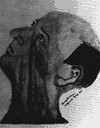 Schönberg was convinced that the student of composition must master thoroughly thetraditional techniques and organizational methods, and possess a wide and intimate knowledge of musical literature if he wishes to solve the more difficult problems of contemporary music. In his classes there was little reference to music since 1900, though the student was encouraged to make full use of the resources available up to that time. Certain aesthetic essentials, such as clarity of statement, contrast, repetition, balance, variation, elaboration, proportion, connexion, transition - these and many others are applicable regardless of style or idiom.
Schönberg was convinced that the student of composition must master thoroughly thetraditional techniques and organizational methods, and possess a wide and intimate knowledge of musical literature if he wishes to solve the more difficult problems of contemporary music. In his classes there was little reference to music since 1900, though the student was encouraged to make full use of the resources available up to that time. Certain aesthetic essentials, such as clarity of statement, contrast, repetition, balance, variation, elaboration, proportion, connexion, transition - these and many others are applicable regardless of style or idiom.Gerald Strang
Sem comentários:
Enviar um comentário